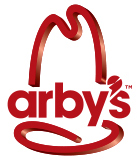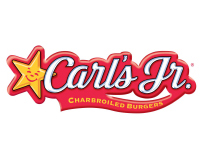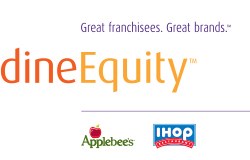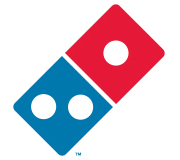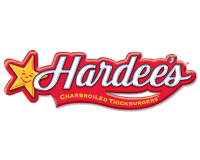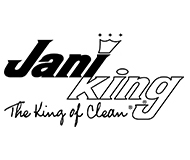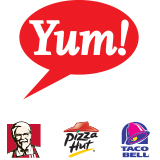By: David Hendricks
San Antonio-Express News
http://www.houstonchronicle.com/business/retail/article/McDonald-s-labor...
03/21/2016
Matthew West can feel an ax hanging over the two San Antonio franchises he co-owns with his father.
"If I had to decide to start a franchise business this year vs. last year with the uncertainty out there now, I would have a hard time deciding to start this year," said West, a partner in two FastSigns franchises, a custom sign and graphics company with 13 employees.
West is one of several local franchise owners who say new and pending action from the National Labor Relations Board in Washington against McDonald's Corp. may upend five decades of franchise standards, raise their costs and hamper job growth.
A lot is on the line, especially in Texas, where the industry has 66,355 independently owned franchise operations, everything from Gold's gyms to fast-food chains like Subway, shipping companies FedEx Kinkos and smaller business-to-business companies like FastSigns. All told, more than 728,000 people in Texas are employed by local franchise owners. The fate of the industry is on trial in a handful of pivotal NLRB cases in New York, Chicago and Los Angeles.
"The NLRB case adds complexity. We can't plan to expand because we don't know when the ax will fall down on us. If it does, we'll be less likely to grow and add jobs," West said. "It's going to take years of rulings to determine who will have to answer the questions now on the table."
The NLRB has taken McDonald's to court, arguing that the fast-food giant is jointly responsible with its local franchise owners for employees at its local restaurants. The case has far-reaching implications for local entrepreneurs like West and corporations that license out their names and products.
Franchising in the U.S. can be traced back to Isaac Singer, the founder of I.M. Singer & Co. He was among the first business owners to charge people a licensing fee that gave them the right to sell his Singer sewing machines.
McDonald's pioneered the modern-day franchise model in the 1960s, licensing its name and providing all the equipment, training and merchandise for local business owners to sell to the public.
Under that model, local owners control all employment issues, including hiring, firing, scheduling and pay.
If the NLRB wins, large-scale franchise operators worry that they could be liable for a host of new expenses like health insurance for local employees. The industry argues that it could also make it easier for workers to unionize. Licensing costs would no doubt rise, West and others say, as corporate franchisors pass along the higher expenses for insuring, monitoring and training franchise employees.
"A new layer of administration would have to communicate and manage risks between two entities. The franchisees already are operating on thin margins," said Darrell Johnson, CEO of FranData, an Arlington, Va., firm that conducts research on franchise business models.
So-called joint employment would also allow disgruntled employees to add the larger corporations to unfair labor lawsuits, like sexual harassment or other discrimination, likely leading to higher employment liability insurance premiums for local franchise owners.
"The premiums will skyrocket," said Pratik Patel, a principal with REM Hospitality in San Antonio, which operates four hotels locally and 14 nationally."The costs would push down to the day-to-day owner."
Their biggest concern if McDonald's loses is whether franchise operators would then have to comply with health care laws that require employers with 50 or more full-time workers to provide coverage under the Affordable Care Act.
Sherry Chaudhry, owner of Comfort Suites Alamo/Riverwalk, said her small franchise hotel cannot afford to pay that. The $2,800 penalty for failing to provide health care coverage would come to $98,000 for her 35 employees, she said.
"That's a fee we cannot absorb. One hundred thousand dollars on a small property is not feasible," Chaudhry said.
The Texas Legislature last year approved a law declaring that local franchise workers were not employees of the corporate franchisor - an attempt to head off the NLRB before it can set a federal standard.
The McDonald's case is still at the NLRB's regional level. So it hasn't yet set a new national standard. If the NLRB wins, the new standard would pre-empt the new Texas law. Labor cases are also almost always challenged in federal courts, making the state law virtually meaningless for Texas franchise owners, said Lawrence Smith, a San Antonio labor lawyer at Ogletree Deakins.
The McDonald's trial stems from cases filed around the country on behalf of workers who said they were subject to retaliation or other unfair labor practices for taking part in protests and strikes as part of their campaign for an hourly wage of $15, as well as for union representation. The push is being backed by the Service Employees International Union and has made low wages a hot political issue.
In a new wrinkle, McDonald's employees sued both the local franchise owners and the company's corporate headquarters. A regional NLRB administrative law judge said they cannot begin to examine whether McDonald's engaged in unfair labor practices until the agency rules on whether the company is considered a joint employer. That trial started March 10 in Chicago.
Worker advocates say McDonald's should be responsible for franchise employees because it uses computer systems to monitor local operations, control pay, hours and schedules, matters that go beyond maintaining brand quality.
The franchise association contends the service employees union wants McDonald's and other big franchisors to be declared joint employers because it would make it easier to unionize employees at a national level. The SEIU otherwise has to hold membership drives, elections and negotiate labor contracts at individual franchise locations. The SEIU declined to comment.
"For 30 or 40 people at a time, it doesn't work," said Michael Lotito, a San Francisco employment lawyer who attended the recent IFA conference in San Antonio.
A case last year against a small recycling center in North Carolina set the stage for the McDonald's fight, opening the question on whether franchise employees could unionize at a national level.
The union representing the drivers of Browning-Ferris Industries wanted to organize the sorters inside the center, who were employed by a third-party staffing firm.
In a 3-2 NLRB decision, the board said it will "consider whether an employer has exercised control over terms and conditions of employment through an intermediary, or whether it has reserved the authority to do so."
That is a broadening of the standard that had existed for decades, but the "new standard" remains "extremely vague," said Mark Kisicki, a lawyer in Phoenix with Ogletree Deakins and who has been involved in the Browning-Ferris case.
"There's no standard the employers community can understand now and build a business model on. This has a massive impact on investments because no one can decide the risks," Kisicki said.
The new standard in the NLRB ruling will have to be defined case by case, Kisicki added.
"This is an incredible drag on job creation. It's damaging the employees that the decision was meant to protect," he said.
The new Texas law is not written broadly enough beyond the franchisor-franchisee situation to apply to the use of subcontractors or other third parties, Hanscom said.
It will be years before existing cases, and possible new ones, can clarify employment liability in situations where two companies work together, Kisicki said.
The Associated General Contractors of America agrees with Kisicki that the widened standard is too vague, said Brian Turmail, the organization's public affairs senior executive director.
AGC of America also fears clarity on employment liability for joint employers could take years, assuming the NLRB decision is not overturned on appeal, which BFI filed in the Washington, D.C., circuit recently, Turmail said.
In the end, the industry worries all of this legal uncertainty and the higher potential costs could ruin the franchise business model.
"The franchise model is successful. It is growing faster than the non-franchise sector and makes the American dream possible for more people than any other model," IFA Regulatory Affairs Vice President Michael Layman said. "If there is joint employment, franchisors would be liable for decisions they have nothing to do with."
The Associated Press contributed to this article.
Posted: 2016-03-21 10:10:41




